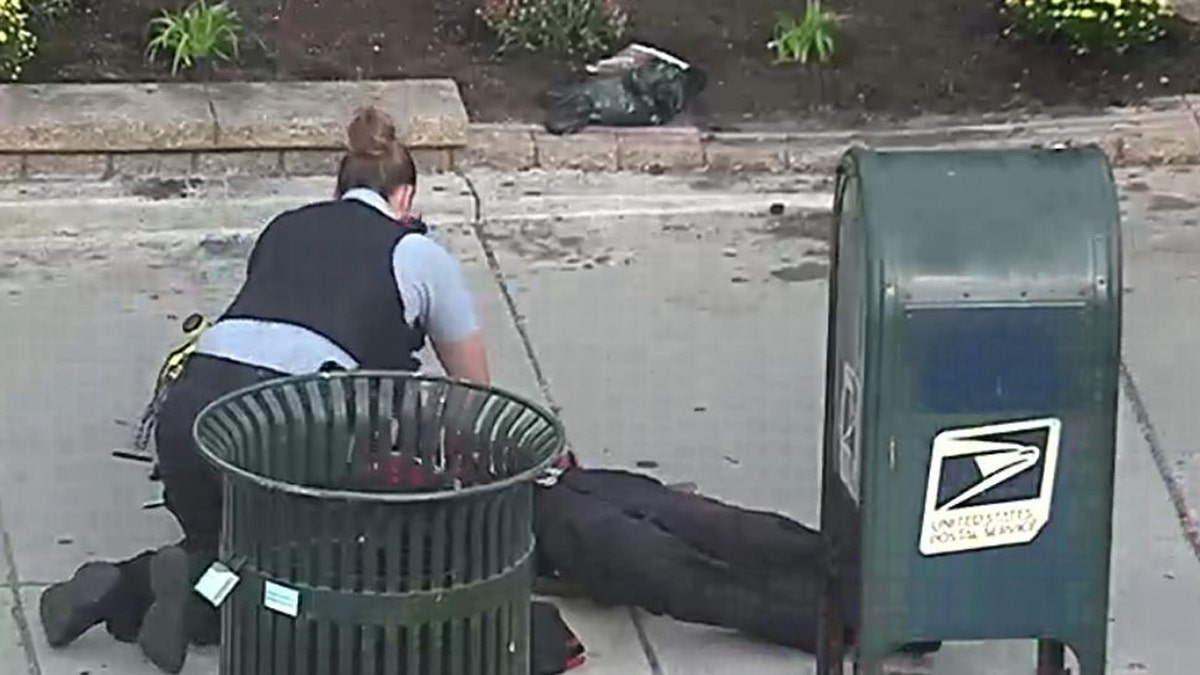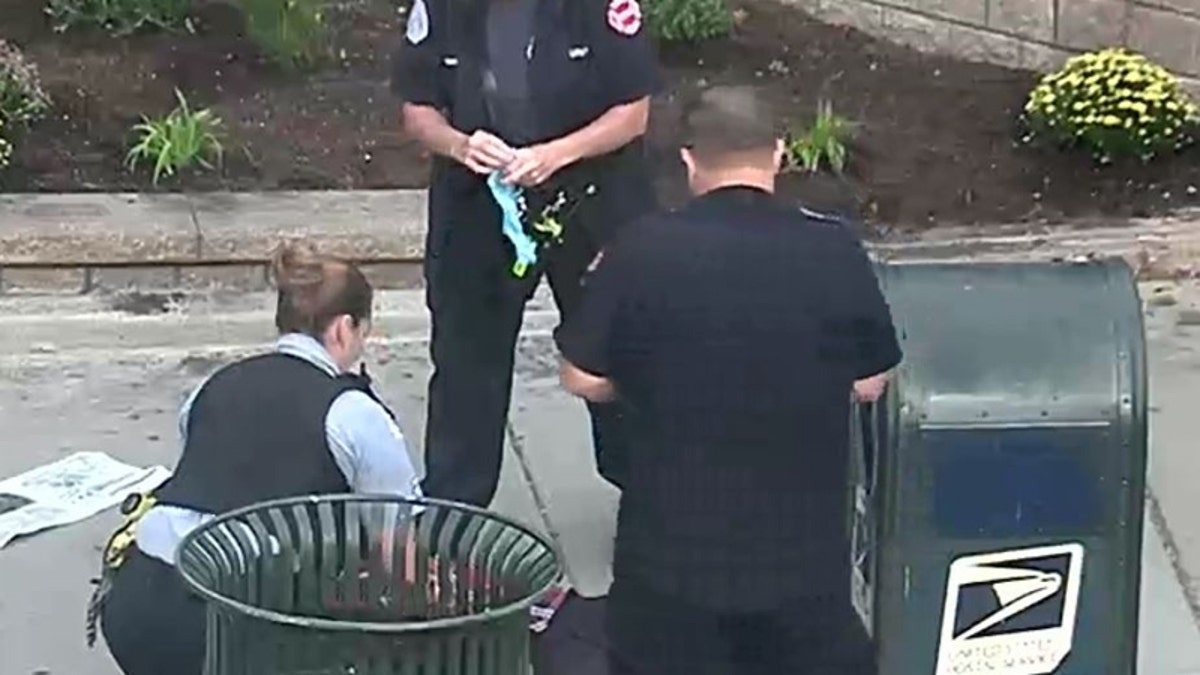Fox News Flash top headlines for August 24
Fox News Flash top headlines for August 24 are here. Check out what's clicking on Foxnews.com
A Chicago police officer is being hailed a hero after her quick thinking saved a man’s life after he appeared to be dying from an apparent drug overdose.
Chicago Police Department shared a series of pictures Saturday morning that showed one of their own “going the extra mile.”
The unidentified female officer with the 18th District responded to reports of a “person down” in the 1100 block of North Clark Street. Once on the scene, she observed the male victim “unresponsive” on the sidewalk.

The unidentified female officer with the 18th District began performing chest compressions on an "unresponsive" male victim. (Chicago Police Department )
Police say she immediately began performing chest compressions and continued to do so even after paramedics arrived on the scene. Shortly after, emergency responders administered naloxone and the man was revived.
He was transported to an area hospital where he is recovering.
NEW YORK MAN ALLEGEDLY IMPERSONATING A POLICE OFFICER PULLS OVER VAN OF DETECTIVES
“Thanks to this astute Officer, this man is alive and is receiving medical treatment. Great work!” a second tweet from the department read.

Emergency responders administered naloxone and the man was revived. (Chicago Police Department )
The United States is in the midst of the deadliest drug overdose epidemic in its history. About 68,000 people died of overdoses last year, according to preliminary government statistics reported last month, a drop from the more than 70,000 in 2017.
The number of overdose-related deaths is continuing to drop and health officials attribute to a boom in naloxone sales.
CLICK HERE TO GET THE FOX NEWS APP
Naloxone is a medication that can reverse opioid overdoses, restoring breathing and bringing someone back to consciousness. It first went on sale in 1971 as an injection. An easier-to-use nasal spray version, Narcan, was approved in 2015.
The Associated Press contributed to this report.








































